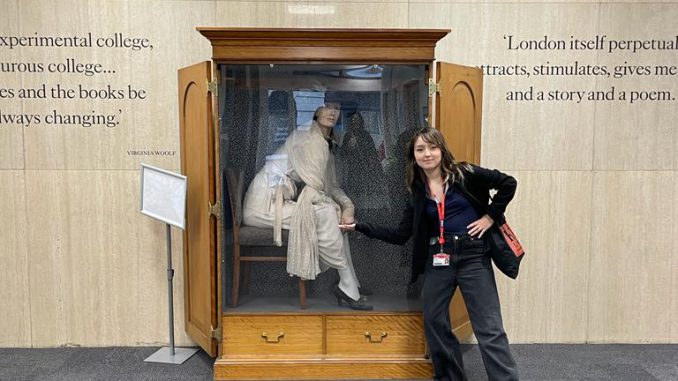
‘Comparative Literature’ as a degree name can sound a bit intimidating, whether it is a BA or an MA, literary studies are challenging but, I dare say, very entertaining. There are many things that I wish I knew about my degree before enrolling, but now that I am here and I have dived into the field like a scuba diver with cheap equipment, I will tell you what it is you should know.
I am currently half-way through my Comparative Literature MA, and there is an enormous amount of freedom when it comes to research. In King’s College I found out that you can compare literally anything! Well, not anything, it can be two or more pieces of literature, different languages, a piece of artwork, music, etc. For academic research in Comparative Literature you will need two or more literary works, or at least a literary work and another piece of media or content. So yes, in case you wanted to compare the movies Shrek 2 and Megamind, that would be possible, as long as you use literary theories which are suitable and have been studied among scholars in the field. Music and poetry are also a good combination, as well as a comparison between works from different literary genres. If you compare or contrast at least two works, bam! you have a Comp Lit essay.
Another thing I wish I had known beforehand, but which came as a pleasing surprise, is that if you are fluent in another language, you can use your mother tongue (or second language) to make linguistic comparisons between that language and English, Spanish, French, Italian, German, etc. Being bilingual or a polyglot becomes a superpower here. On top of that, you can read the primary and secondary texts assigned to you in said language (if they are available), and at King’s College in your essays you can, in some cases, add quotations in the original language of the text.
And finally, we read and talk about texts from all over the world, from unknown corners in the North Hemisphere to my hometown in South America; the diversity and variety of styles is astounding. On many occasions the discussions take an interdisciplinary course: you can talk about psychology, sociology, history and even medicine regarding a piece of literary work. The sky’s the limit. Any Comparative Literature course is about making connections, no matter how random they may seem as long as they are supported. Not every class is about close reading and reviewing the most important theories; there are seminars, open discussions and debates. This, too, makes a Comp Lit degree one of the most practical and collaborative degrees with other fields from the Arts and Humanities.
Oh, and of course I need to mention the amazing libraries and the 79 databases available to just Comparative Literature students, which I’m sure most book lovers will deeply appreciate–so now you know!
Written by Rocío Ibáñez, MA Comp Lit

Leave a Reply